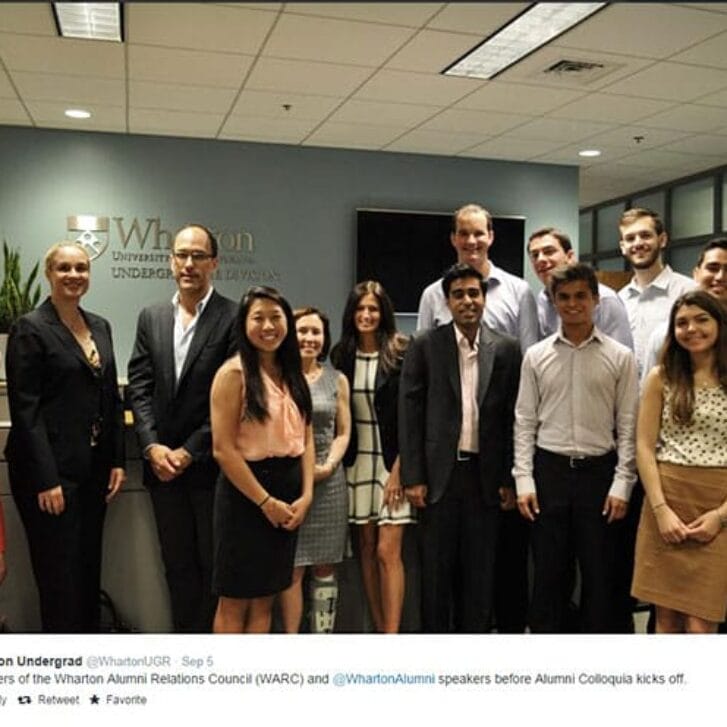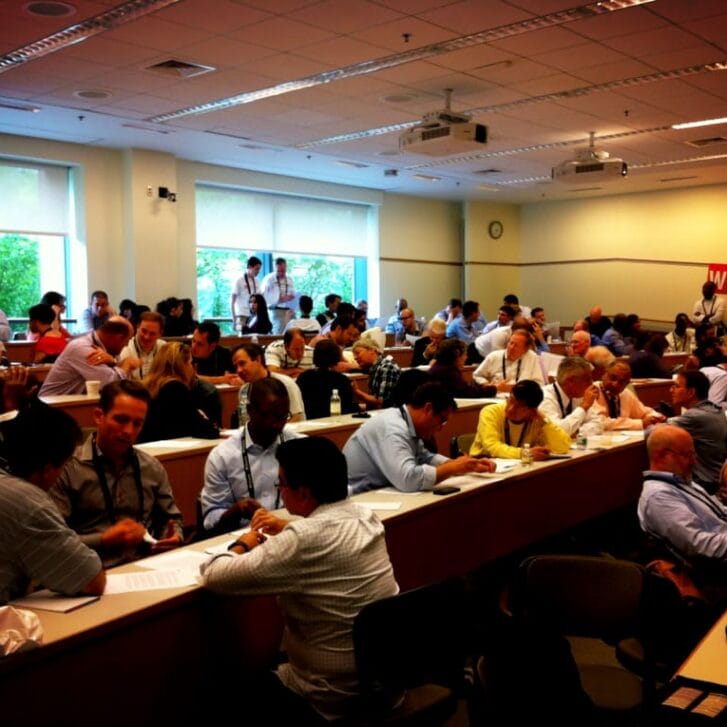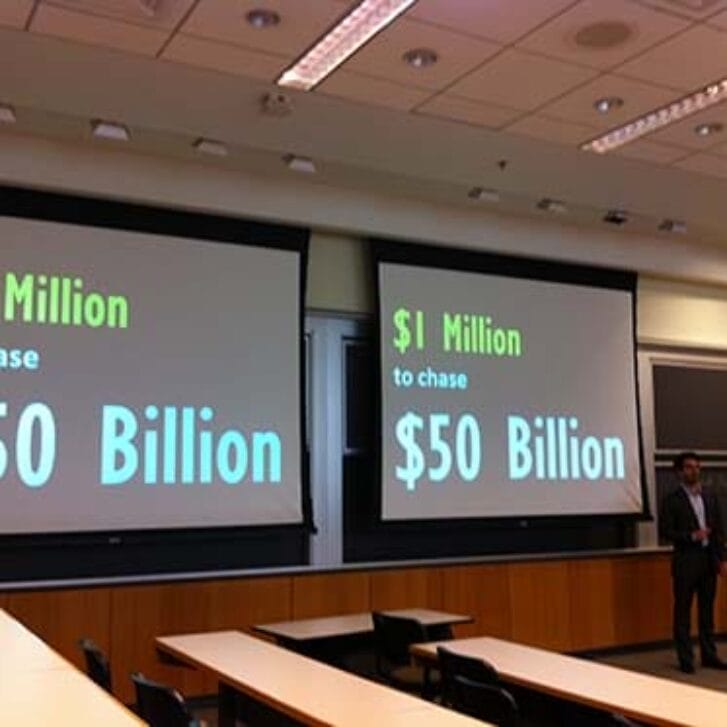Behind him on the screen was one of the most imaginative (albeit inappropriate) images of Huntsman Hall I have ever seen. It was a stylized shot of the iconic Wharton School building with the Eye of Sauron burning at its peak (à la Lord of the Rings trilogy). It was meant to be humorous, but Apu Gupta, WG’05, also meant to make a point in pictures to an audience of undergrads who attended his on-campus Wharton Colloquia talk. In his youth, Gupta had viewed going to business school as a career failure. At Wharton, he learned differently.
“It was one of the best decisions I ever made,” he told the students.
It was a decision that would propel him into the ranks of founders of the hottest Wharton startups to watch—in his case, Philadelphia-based Curalate—but it’s not to say that he didn’t try his hand at entrepreneurship previously. After earning a bachelor’s degree from the University of Texas at Austin, he meandered from consultant (until the Enron and dot-com busts) to world traveler (when he chased pythons and rehabilitated rainforests) and at one point tinkered with startup ideas with Mark Pincus, W’88, later of Zynga fame. But it was at Wharton where he made priceless connections and absorbed precious knowledge about managing people, optimizing supply chains and balancing cash flows.

Apu Gupta, WG’05
Soon after, with a Wharton colleague, he launched what would become India’s second largest pharmacy chain, MedPlus, in three years. He returned to stateside to try his hand at another startup. He raised $750,000 from venture capitalists NEA, First Round Capital and MentorTech Ventures. With partner Nick Shiftan, Gupta launched Storably, which didn’t work, and then, DrinkedIn, which didn’t prove sustainable.
They then devised of Curalate, a provider of tools that allow brands and marketers to understand customer activity and interest on Pinterest and other visual-based social media. Curalate has been a success story since.
A local entrepreneur, Gupta can be found giving of his time and expertise on campus—such as at this September Colloquia talk, where he shared life lessons from his well-lived post-college decades.
Lesson number one for students, according to Gupta, is to not expect careers to be linear.
“Your five-year plan is useless,” he said.
Lesson number two is that a minimum viable product (MVP)—a catchy term in technology startups that defines the soonest possible point where a product or service can be tested on the market—is more minimally viable than you might think. At Curalate, the team works in “three-week sprints,” releasing something every three weeks and being keen to those features and services that users complain about. If no one complains, that is a good indication no one likes a MVP enough to bother.
And lesson number three is that startups are not risky. They can be scary in that entrepreneurs may feel like they’re risking their careers and a lot of money. But Gupta believes himself to have the most job security in his life as CEO of his startups, while at the same time he gets to live a life of creativity and freedom.
“I wasn’t going to be happy until I grew my own thing,” he said.
Editor’s note: The Wharton Colloquia occur annually thanks to the efforts of the student-run Wharton Alumni Relations Council (WARC) and Wharton Alumni Relations.


























